Alcohol and Anxiety
Today we will look at anxiety and the role it plays in alcohol addiction.
Anxiety is inevitable, but we can change what we do and feel about it, ultimately affecting the level of severity we experience and the frequency of attacks. It shows that we care about what is going on. Anxiety is a tool we inherited from our prehistoric past that let us know that we were in danger. It is useful and necessary, and is a natural part of life.
Unlike normal anxiety, chronic anxiety does not have roots in the present moment. Chronic anxiety begins when the anxiety becomes our default modus operandi. The conscious mind focuses on the anxiety, fueling it and allowing it to expand and become consuming. We find ourselves on a hamster wheel of potential causes, cures, analyses, and ultimately, fear and discomfort. It surfaces for, as far as we know, no apparent reason. We make attempts to repress or sidetrack it.
Drinking is one way that many try to deal with their anxious feelings. While we are drinking, it feels like our problems temporarily disappear. When we look more closely at the way alcohol changes brain chemistry, we see that all it does is slow us down and weaken our higher faculties. In the relatively short long term, alcohol usually makes our problems worse by increasing our anxiety and having a negative impact on our overall health.
We have the ability to naturally rewire and change our brains. When we make the decision to quit drinking, over time we can reverse many of the negative effects on our brain chemistry and overall health. Our brains are able to find a new and more healthy version of homeostasis with less anxiety, less depression and more clarity.
Chris, with almost 1 year since his last drink, shares his story
SHOW NOTES
[11:40] Paul Introduces Chris.
Chris is 36 years old, a power plant operator, lives in North Dakota. He's married with two kids and a dog. He enjoys camping and boating, cooking, photography, and woodworking.
[13:40] What is camping like now that you don't drink?
Alcohol took over his life. Now he feels more present for his kids. He feels his life is more enriched. He enjoys more of nature. He is happy to have quit.
[16:00] When did you first realize that you had a problem with drinking?
A while ago. He craved it since he started in high school. It started social, and it gradually progressed. In the military, he went to Korea when he was 21. Being far away from friends and family was difficult and and he drank more. He suffered from “terminal uniqueness”. He felt he was different from the people around him. We lie to ourselves and focus on the differences, further isolating ourselves from the community around us.
[23:55] Did you ever have a rock bottom moment? How much were you drinking?
He was drinking a case of tall beers almost every week. His wife had been giving him ultimatums for a while. He started to drive drunk on a regular basis. He was regularly drunk, or if he wasn't, he was experiencing intense anxiety. He would regularly yell at his kids. He was terrified about what he was becoming. His wife turned toward the church and he turned toward alcohol. He and his wife had a blowout over drinking and they separated. He read a few AA books. He moved out to the camper. His faith suffered and he had to see his pastor. His wife explained how much he was hurting her. He went to see a counselor and started to unload his emotions. He eventually found an intensive outpatient program that helped him quit.
[31:38] Will you share a little of what you learned in your outpatient program?
Neuroplasticity, how your brain becomes dependent on chemicals. He learned that it wasn't a moral failing, and he felt relief. He started to relate to the other members in the group. His wife filed for divorce, and it helped him apply himself in the program.
[37:15] Where did you get the strength to move forward?
The gift of desperation. He didn't know what else to do. He saw that this was an opportunity to change and he applied himself. His faith life had dried up and he became inspired after reading “Bill's Story” from the AA book. He started to get better rest. As he worked the program his feeling of higher power returned. He realized how much he had hurt his wife. He was lucky enough to have counselors and friends in his life that helped him get through it. He started to focus on his actions and not the results with his kids and his wife started to come around. He started to do the work for himself and not for her.
[45:42] What have you learned most about yourself in sobriety?
That he's worthy of love. He's worthy of a happy life. Life is worth it.
[46:20] What's on your bucket list in sobriety?
To continue. To continue to work on his marriage. To continue to make memories with his family. He wants a future for him and his loved ones. He wants to help other people with recovery.
[47:51] Rapid Fire Round
What was your worst memory from drinking?The many ways that he hurt his wife and kids. He'll never forget hurting his loved ones.
Did you ever have an “oh-shit” moment?
Last summer when he chose drinking over his wife.
What’s your plan moving forward?
To continue to work a program. He likes to keep his sponsor close.
What’s your favorite resource in recovery? What’s the best advice you’ve ever received (on sobriety)?
You don't have to be sober for the rest of your life, today. Take it a day at a time.
What parting piece of guidance can you give listeners who are in recovery or thinking about quitting drinking?
Just be honest with yourself. Stop lying to yourself. Don't listen to the voice of addiction. Tell someone that you trust. Accountability and community is key.
You might be an alcoholic if...
“You go to sleep drunk, and wake up with less eyebrows and more penises drawn on your face.”
Resources mentioned in this episode:
This Naked Mind – a book by Annie Grace
Connect with Cafe RE- Use the promo code Elevator for your first month free
Sobriety Tracker iTunes
Sobriety Tracker Android
Sober Selfies! - Send your Sober Selfie and your Success Story to info@recoveryelevator.com
“We took the elevator down, we gotta take the stairs back up, we can do this!”
More Episodes
RE 228: Only in My Darkness Did I see My Light
 2019-07-01
2019-07-01
RE 227: 8 Things to Remember When Going Through Tough Times
 2019-06-24
2019-06-24
RE 226: Americans Are Drinking Less Alcohol
 2019-06-17
2019-06-17
RE 225: Why I Drank After 2.5 Years Alcohol Free
 2019-06-10
2019-06-10
RE 224: Which Wolf Will You Feed?
 2019-06-03
2019-06-03
RE 223: Let Authenticity Replace Positivity
 2019-05-27
2019-05-27
RE 222: The 20/40/40 Rule
 2019-05-20
2019-05-20
RE 221: In Sobriety, We Must First Learn Who We Aren’t
 2019-05-13
2019-05-13
RE 220: Depression, Stress and Anxiety
 2019-05-06
2019-05-06
RE 219: Let's Talk Surrender
 2019-04-29
2019-04-29
RE 218: Let's Talk Relapse
 2019-04-22
2019-04-22
RE 217: 10 Ways to Ground Yourself in Sobriety
 2019-04-15
2019-04-15
RE 216: The Unfu*ck Yourself Movement
 2019-04-08
2019-04-08
RE 215: Addictions are Signposts in Life
 2019-04-01
2019-04-01
RE 214: Your Body and Mind Have the Capacity to Heal Itself
 2019-03-25
2019-03-25
RE 213: The Most Controversial Word in Recovery
 2019-03-18
2019-03-18
RE 212: The Body Tells us Where to go Next in Recovery
 2019-03-11
2019-03-11
RE 211: Courage to Face the Unknown in Sobriety
 2019-03-04
2019-03-04
RE 210: Cravings - What They are and How to Deal With Them
 2019-02-25
2019-02-25
RE 209: 4 Themes From 4 Years of Podcasting
 2019-02-18
2019-02-18
Create your
podcast in
minutes
- Full-featured podcast site
- Unlimited storage and bandwidth
- Comprehensive podcast stats
- Distribute to Apple Podcasts, Spotify, and more
- Make money with your podcast
It is Free
You may also like
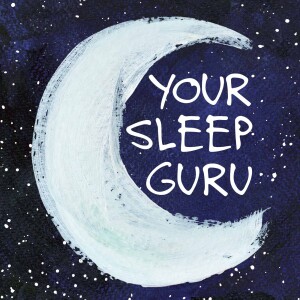
Your Sleep Guru Podcast


Anxiety Slayer™ with Shann and Ananga

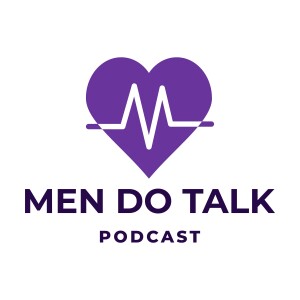
Men Do Talk Podcast

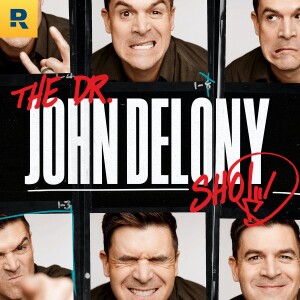
The Dr. John Delony Show

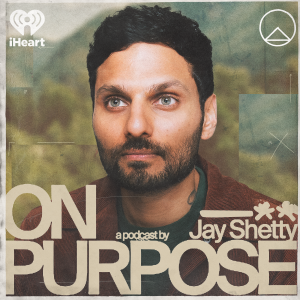
On Purpose with Jay Shetty


- Privacy Policy
- Cookie Policy
- Terms of Use
- Consent Preferences
- Copyright © 2015-2024 Podbean.com

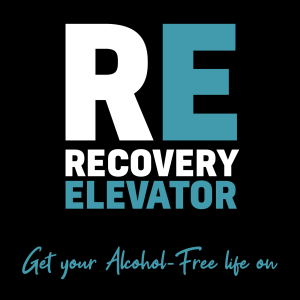

 iOS
iOS Android
Android